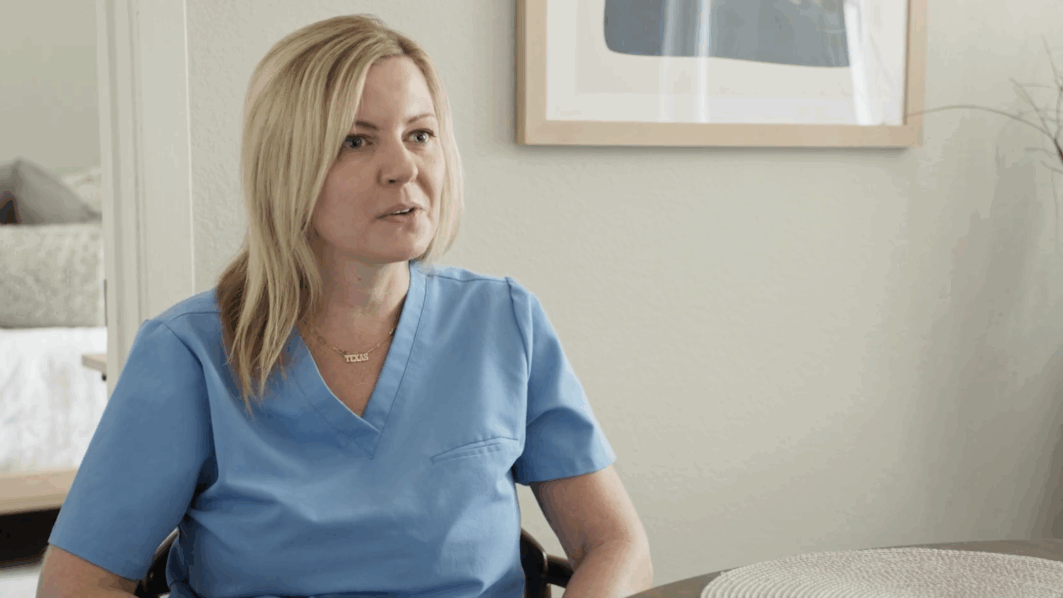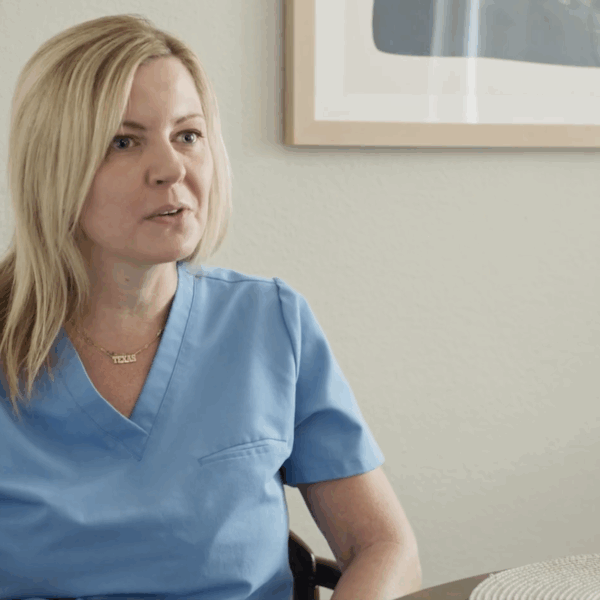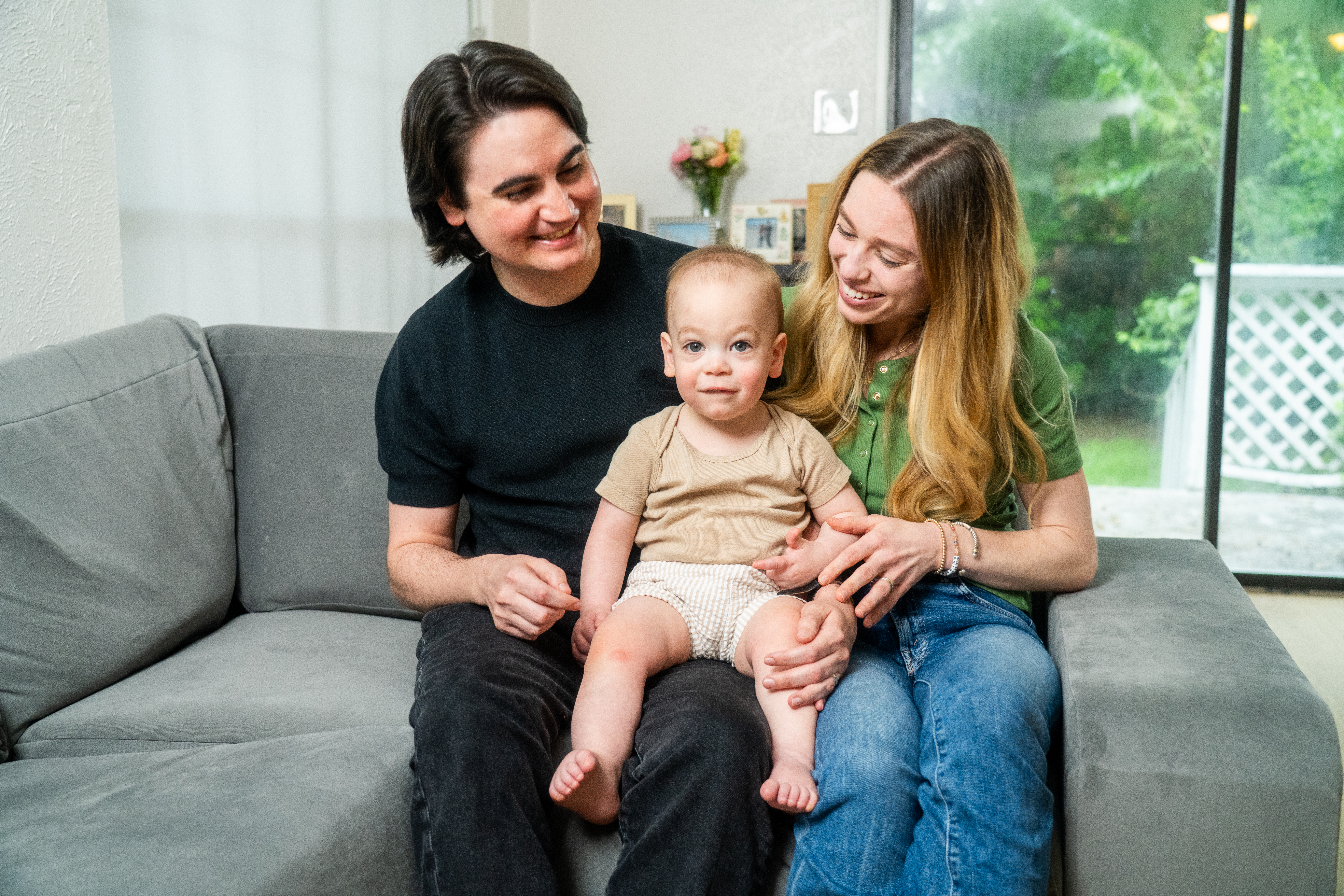
What one NICU nurse wants you to know about how abortion bans affect babies in Texas
Synopsis
Anna Bullock, a nurse in Austin, Texas, has spent decades caring for critically ill and premature newborns in her hospital’s Neonatal Intensive Care Unit. She spoke with Abortion in America in Texas about how her state’s abortion ban has reshaped the NICU and the way nurses like her support the families of their patients.
In my 20 years as a health care provider, I’ve seen a lot.
As a health care provider here in the state of Texas with the changing legislation over the past few years, it’s been a challenge to navigate. We do our best—for the mothers, the patients, the families as a whole—but it’s complex. It’s hard to know exactly what the laws are as they continue to change, but we do our best to give our best care to these families.
It is really difficult to see these women becoming septic and these babies dying.
I always knew I wanted to be a nurse and help people. I wasn’t sure which specialty I wanted to go into, I did a rotation in the NICU in college and fell in love with it. The NICU babies, they’re the most vulnerable population. They don’t have a voice to speak for themselves, so I wanted to become a NICU nurse to help them.
The best thing in the world is to see a very sick baby born, stay with us—sometimes four, five, six months—and then we discharge them home to their families. Seeing them walk out the door, they get to ring a bell when they leave the NICU and go home as a family. That’s so rewarding.
I am a mother with two sweet children, a woman, and a health care provider. I cannot imagine seeing what I see, being away from my children and not receiving the adequate health care that a woman needs.
It’s unimaginable.
That has really affected me personally being a mother.
I cannot imagine seeing what I see, being away from my children and not receiving the adequate health care that a woman needs.
NICU stands for Neonatal Intensive Care Unit. So we deal with a wide range of babies, some born premature as early as twenty-two, twenty-three weeks. We also deal with term babies experiencing things like respiratory distress, hypoglycemia, which is low blood sugar, and a bunch of surgical term babies as well.
We’ve seen a lot of rules and regulations change here in Texas in the past couple years, one of them being the clinics closing for women’s health care. I’m seeing how these laws and new legislation are negatively impacting women here in the state of Texas.
A lot has changed. Conditions that we had not seen 10, 15 years ago that are preventable with adequate prenatal care, we’re seeing a resurgence in that.
We see a lot more women who aren’t seeking prenatal care or they don’t have access to it. We have a lot of babies born with defects that we could have helped prevent or know about before. We’ve also seen babies that are born with conditions that are unfortunately incompatible with life.
It’s kind of like providing grief counseling, giving as much support as we can give to these families.
That’s more of what we do now, I’ve noticed a big difference.
We work tirelessly and endlessly, but it’s emotional, it’s hard. You know, a lot of us women, we empathize with what these women are going through and how hard it is. The NICU stay is long and it’s one of the hardest challenges any family will ever have to go through, so just being part of that can be stressful.
You try to leave work at work, but it affects us. We take it home with us.
The NICU stay is long and it’s one of the hardest challenges any family will ever have to go through.
When a baby’s born with a condition that is deemed incompatible with life, they are born, go straight to their mother, typically to their chest, do some skin to skin with mom and dad. The parents get to spend as long as they want with the baby. Sometimes it can be minutes, sometimes it’s hours, sometimes it’s a day until the baby unfortunately passes away.
Oftentimes those mothers have other children as well, so they’re in the hospital trying to get care and their other children have suffered with their moms not there.
I can’t imagine being away from my children and not receiving the adequate health care that a woman needs.
We’re giving the best care to these babies. These women deserve the best care as well.
I want people to know what the NICU nurses are going through here in the state of Texas and everywhere in the nation.
The outcomes for women are getting worse. In my field as a provider, we’re seeing more cases that could have been prevented that we haven’t seen in a while.
The main thing we’ve been focusing on is just doing our best to support these families, these women, these children in need, and provide as much comfort as we can for them.
The care we give to these babies is the same. Nothing’s changed with the care. We still provide excellent care in everything we can do for these babies.
We’re giving the best care to these babies. These women deserve the best care as well.
Her story has been edited for length and clarity.
More Stories Like This

What one NICU nurse wants you to know about how abortion bans affect babies in Texas

In her own words: Why this Texas physician now helps women in Virginia
